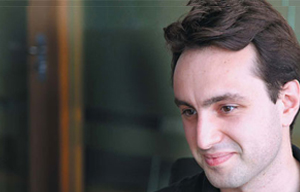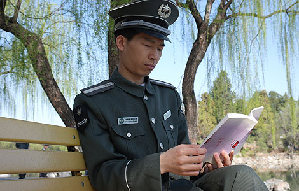Shanghai to open first Sino-foreign high school
Move part of efforts to become international education center.
Shanghai will establish its first Sino-foreign high school, part of the municipality's efforts to build itself into an international education exchange center and one of the most popular study destinations in Asia.
Shanghai Qibao High School and the United States' Dwight School will establish the Shanghai Qibao Dwight High School, a three-year boarding school in the city's Minhang district, the municipality's micro blog said on Monday.
The first batch of 100 students will be enrolled in the fall of 2014, it said.
The school will be open to Chinese and foreign students, who have to go through a comprehensive assessment, it said.
Students from Shanghai will account for the majority of Chinese students, though the school did not disclose the particular proportion.
"Students at Shanghai Qibao Dwight High School will be taught bilingually. The school will also adopt a credits system," said Qiu Zhonghai, president of Shanghai Qibao High School.
The courses will combine Western sciences and traditional Chinese education.
It will maintain the core curriculum used in Chinese schools, covering subjects such as Chinese, mathematics, politics, history and geography.
At the same time, the school will introduce the International Baccalaureate Diploma Program, which provides students aged 16 to 19 with the internationally accepted qualification for entry into higher education, which is recognized by many universities worldwide.
"The new education model for high school is really attractive. Students don't have to live under huge academic pressure. Besides, the certificate from a US high school may be useful for students to apply for higher education in the US," said a woman surnamed Ma, whose son is studying at a junior high school.
The school is part of the city's move in recent years to develop high-level cooperative high school education.
According to a development plan for the 2011-15 period, released last year by the Shanghai Municipal Education Commission, the city encourages quality high schools to establish cooperation programs with overseas education bodies, schools and education groups.
The commission said it plans to establish one to two Sino-foreign cooperative high schools in the city during the five-year period.
So far, Shanghai has more than 220 Sino-foreign cooperative education bodies and programs. It plans to add another 40 Sino-foreign cooperation programs by 2015, which will mainly focus on academic education.
"These programs will improve our students' understanding of the world and increase their ability in international exchange," said Yang Weiren, an official of the international exchange and cooperation department of the Shanghai Municipal Education Commission.
In recent years, Shanghai has outpaced the rest of the country in promoting the development of Sino-foreign cooperation education.
Last year, Shanghai New York University was founded as China's first Sino-US university operating as an independent legal entity, operated by New York University and the Shanghai-based East China Normal University.
Its model of education and international courses has drawn the attention of Chinese students and education experts.
Earlier this year, around 500 Chinese students took part in the first round of admission interviews, but only 151 will finally be recruited.
Sino-foreign cooperative education is still on the margins of the country's education development, despite its rapid progress in recent years, Yang Dongping, an education professor at the Beijing Institute of Technology, said at a seminar last month.
Yang called for the promotion of China's education reform through openness and competitiveness.
The goal of cooperative education is not to copy models of education from overseas schools. More creative educational concepts and methods should be developed through cooperation, said Xi Youmin, president of Xi'an Jiaotong-Liverpool University.
|
|
|
| The education of Andrea Pasinetti | Security guards moonlight as college students |


















